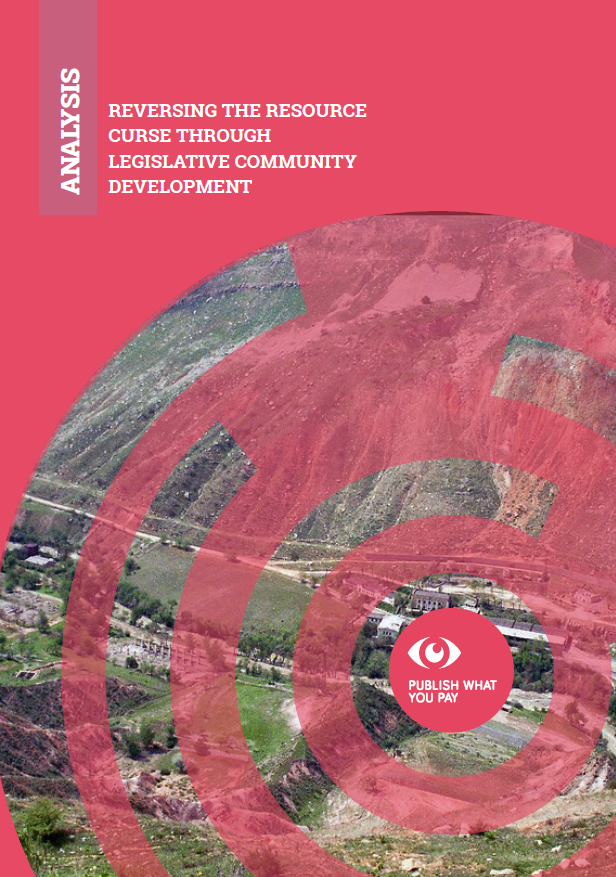Since becoming PWYP Australia’s National Coordinator almost a year ago, I have been frequently been asked ‘What on earth is happening in Australia?’ It’s a fair question for many of my overseas colleagues; in fact it’s a question that has been echoed by many Australians. In just five years we’ve had four Prime Ministers, numerous ministerial reshuffles, and a policy agenda that at best could be described as ‘variable.’ So it is with great pleasure that I can write this post as it’s has been a long time coming.
Australia first committed to pursuing implementation of the EITI standard in 2011, when a pilot of the program was announced by the then Labor Government. Foreign Minister Kevin Rudd (former Prime Minister) at the time of the announcement stated “Given Australia’s very significant mining sector, we hope this decision will encourage other countries to adopt EITI.” Australia is a long-time advocate for the EITI. Our government has always been proud to trumpet that we are one of the largest financial donors to the EITI program, contributing as much as $18.45 million AUD between 2006 and 2015, and that our commitment extended to hosting the 2013 EITI Global Conference in Sydney. We have a history of strong support for the EITI, just not always within our own borders.
To deliver on its EITI commitment, a Multi Stakeholder Group (MSG) was established, as per the EITI protocol, and the pilot went ahead in three Australian States, with those, the Australian Government and eight extractives industries companies agreeing to report. The pilot ran until 2014 and in May 2015 the MSG released its report to Government, with the recommendation that Australia to move ahead with implementation.
To get back to the question asked of me so often then, what happened? Well, politics happened. The continual changes in leadership meant that the political will to progress with implementation of the EITI ebbed and flowed, dependent on which Minister had carriage of the issue. By the time the MSG had reported, Tony Abbott had become Prime Minister, the appetite for implementation was lacking, and the Government appeared to have shelved the EITI for the foreseeable future.
In keeping with style of the previous five years however, by the close of 2015 we had a new Prime Minister, Malcolm Turnbull. For Australian Civil Society who campaign in the transparency and anti-corruption space, this was a welcome change, and one that brought Government action to an area that for many years had been largely avoided.
Under the Turnbull Government, Australia has recommitted to joining the Open Government Partnership (OGP), and is currently in the processes of finalising its first National Action Plan (NAP), a process which PWYP Australia took an active part in. The recent Federal budget saw the introduction of strengthened whistle-blower protections, and the introduction of a Diverted Profits Tax (DPT), also known as a ‘Google Tax’. This is similar to legislation introduced in the UK and targets multinationals attempting to shift profits offshore to minimise Australian taxation. EITI implementation was announced as part of a package of commitments to coincide with Australia’s attendance at the London Anti-Corruption Summit last week, which also included announcing a consultation process on establishing a public beneficial ownership register for companies.
These are significant announcements for Australia. For many organisations, including PWYP Australia, these are the outcomes that years of campaigning and advocacy have been working toward. But we are aware that it is only the beginning. Policies are easy to announce, much harder to implement, and as Australia heads to election on July 2, we are faced with the possibility of yet more political change. For EITI implementation however, the future seems more stable. EITI importantly enjoys both bi partisan political support, and support from the formidable Australian extractives sector. Combined with PWYP Australia, and numerous other Civil Society actors, we have the successful collaborative combination for progressing with EITI candidature, regardless of election outcome.
It will be a process not without its challenges, and though we may not have the privilege of being the world leaders in extractives sector transparency, we do have the opportunity to learn from those who have gone before us. EITI also gives us a stronger platform to campaign from as PWYP Australia continues to advocate for the introduction of mandatory disclosure regulations that would bring us in line with many of our Northern counterparts. Australia continues to increase its presence in the overseas extractive sector, most notably on the African continent, and the need for oversight of Australian companies’ activities aboard has been highlighted by numerous organisations, including the International Consortium of Investigative Journalists (ICIJ). The ICIJ is the organisation behind the recent ‘Panama Papers’ expose and authors of the 2015 investigation into Australian mining in Africa, ‘A Fatal Extraction’. While a number of Australian companies have, or will soon, report under mandatory reporting regimes in other jurisdictions, many more are not captured under other jurisdictions reporting regimes. It is vital that Australia introduce these laws within our own country to ensure that we have true accountability of Australian companies’ activities overseas.
This is an exciting time for PWYP Australia. We are ready to contribute to the EITI process and continue to work with the Australian Government on mandatory disclosure. I wrote a blog in November 2015 for the PWYP website where I stated that ‘Australia is currently in the midst of some of the biggest transparency and anti-corruption conversations we’ve had as a nation. Unfortunately these have translated into minimal tangible changes.’ I’m pleased that I can now say that we are starting to see these changes. EITI is our first step, but it is an important one for Australia.











